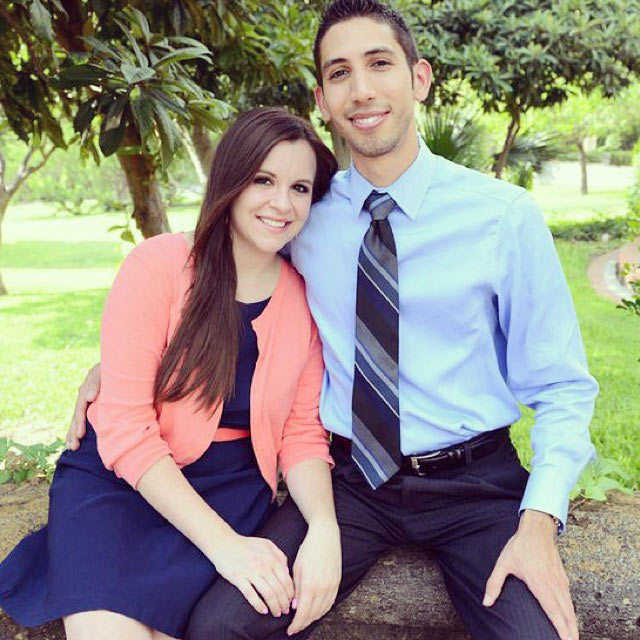PODCAST
Wholesaling with Marco Romero


Mitch Stephen chats with
Marco Romero
Episode 295: Wholesaling with Marco Romero

Real estate wholesaling is not your regular wholesaling. It is a tedious and challenging concept to begin with. Marco Romero, co-owner of Hilco Homes, teaches us how to make wholesaling less complex and more exciting. As any real estate agent, Marco also had a life-changing first deal which led him to starting his own wholesaling business. He shares the right and the wrong lessons he learned about the industry and what can be taken out of the middle of a deal. With his leadership skills, Marco has managed a have a whole team working together and created a round-robin system for every contract that comes in, ensuring that everyone gets paid.
—
Watch the episode here:
We are here with Marco Romero. He’s from San Antonio. He’s got a company called Hilco Homes. He and his wife have been wholesaling for a long time. Before we get started with Marco, here’s a message from our sponsor. “This is TaxFreeFuture.com. If you don’t have a tax-deferred or tax-free investment vehicle or account where you’re growing your retirement or your finances, you are missing out on a huge advantage. Please check out TaxFreeFuture.com, the 37 videos are there, because you do not have any idea what your financial advisors are not telling you. They are not telling you a lot.” You and I both have talked about this before. We raise private money to do our deals. A lot of that money comes from people who have self-directed IRAs or we teach them how to get their money into a self-directed IRA so they can quit depending on Wall Street and that ticker tape for a living. Take control of your financial future. How long have you been in the business?
I started in real estate several years ago. I started by joining a local education and mentor group. I didn’t start investing truly. I didn’t start Hilco Homes until a few years ago.
You’re married. Do you have kids?
We are married. We have two kids. Our daughter, the eldest, is under three. We have a son who’s hit seven months. There’s a lot going on especially early on.
That’s important stuff because people say, “I’m busy or I’ve got too much going on.” Here’s a guy who’s got a lot going on. He’s still out there slaying the dragons and making it work. When you dipped your little finger in, what was your first deal? Do you remember your first deal?
When I first started a long time ago, I started as a real estate agent and I specifically focused on finding investment deals for investors. I’ve found that as a great opportunity to leverage and learn from how they view deals, how they mapped it out and oversaw it. My first wholesale deal, I remember it was off Hiawatha here in San Antonio. At the time, I had been telling myself, “I would love to wholesale because of the opportunity to control how much you made. It was a little bit higher rather than getting 3% on $50,000 sale or whatever. It came from a friend of mine where he and I worked together. He was an investor and he was like, “I found this great deal. What can we do with it?” I was like, “Let’s try and wholesale it.” I didn’t know exactly what I was doing, but we got it under contract. I went over there and put a sign in the yard because I asked her if we could do that. We shot a video going up and down and around every room trying to showcase it. This was probably a few years ago when I did this first wholesale deal. Eventually brought some investors over there and got a deal done. It went pretty smooth.
Do you know how much you made? Do you remember that?
On that one, we made $3,000 for him and $3,000 for me. It wasn’t much. It was a lot to me at the time and I was excited to prove the concept, officially do a deal. It was exciting.
That’s the point what you said. You proved the concept. The most important deals in your life will be the ones that are different than all the other ones. They work because it will open up that door, not only in your mind but in your heart. You’ll start to own the concept in your heart. Reading about it, strategy and then owning that strategy in your heart are two different things. You start to own it in your heart when it happens to you and you get a check from that strategy. The most important deal of your life is the first one you do that you get paid on. It doesn’t matter how much money it was, that’s not the point. The point is you proved like, “I can do this. It does work. Probably a way to ramp up the numbers or do it a little bit better, more efficient and with more profit in these deals.” The first deal doesn’t have to be out of the park home run. As a matter of fact, tell me what you think about this. It’s almost a disadvantage for those people who have done their first deal and made $50,000. That’s almost setting these people up for some bad juju.
They think, “This happens every time.” They don’t have those strong fundamentals of disciplining, getting an after. They think it plops in their lap. It’s all super easy. That is the rarity and the oddity, though it would be nice to have that as your first deal.

Wholesaling: Wholesale offers you the opportunity to control how much you make.
It can work against you a little bit because those deals aren’t the norm. What is your normal wholesale profit? What is that average wholesale profit?
Ours at Hilco is over $8,000.
That’s typical but if you do twenty of those a year, which is not asking for the moon. I know a lot of people do a lot more than twenty. That’s $200,000 a year give or take. Most of the people I know in San Antonio would be rich at $200,000 a year. I hope they don’t Californicate Texas though. You’re leaving there for a reason. Don’t screw this place up.
It’s big enough here that if that happens, we can shuffle things around, push them all in the corner, panhandle or something.
You’ve got a little giveaway for the folks that we’re going to give away. You’ve got ten videos on how to successfully wholesale. People don’t think of the little things. It’s in the minutia. It’s in the discipline. It’s in the small things that you do in the beginning. The beginning’s important to get right because if you don’t get it right and you don’t hit success within a relatively short period of time, you may quit a business that could be worth a fortune for you. That’s how it was for me. I almost quit the house business 2,000 transactions ago when I got tied up in some rentals that were killing me and I was getting hurt pretty badly. I wanted to run away. This mentor guy that I gave the last $10,000 out of my bank account to showed me how to fix the problem and not only how to not leave the business, but how to stay in business for many years. Be careful how you start because you want to give yourself a good chance to succeed because this business can be worth a small fortune. Not everyone wants to be rich, wealthy or worth multimillions of dollars. You can make a good living at this business and have a huge life leftover too if you learn how to do it right. It depends on what’s more important to you, time or money.
Being honest and managing expectations are important aspects of doing a deal. Share on XI took these deals. I’m going to sacrifice all my time and everything to build my wealth and my finances big. I’ll pull back at that time and bring more time back into the balance of my life. Be careful if that’s your plan because what happens is when you get to running fast for five to ten years, you don’t know how to turn back anymore. We forget. I was still buying 100 houses a year many years later. Where do you start with wholesaling? What were your first lessons in wholesaling that you were doing wrong? What were the things you were doing wrong when you started out?
One of the big mistakes I made early on was not knowing my numbers. I was focused on I want to successfully do a deal because I didn’t know how to do a deal. I wanted to get to the closing table and get a check that I didn’t realize that I was getting some good deals and I was selling them for almost nothing. I was not helping myself get ahead. That first deal I made $3,000, but the first few after that I was only making $1,000 on each one. Any money is good money, but at the time I needed to bring in more money, so I had seeds for more marketing to pull myself out of the financial situation I was in. By not knowing my numbers, I was selling the deals at significant discounts. The investors loved it so they definitely came back. I definitely built a long-term strategy from that perspective. Knowing your numbers so you know, “On this deal, I can make $5,000 or on this deal, I can make $8,000 or on this deal, it might be this, that and the other.” You need to know what your ARV is. You need to know what the rehab is and be mindful of that. In the early stages, I was not as knowledgeable. That would be definitely one of the big learning lessons.
I always tell everybody the two biggest learning lessons for me. Number one is being honest, being forthright and honest with everyone that you deal with. That includes the sellers, the buyers and anyone else. Letting them know what’s going on. Too many people go in, especially from a wholesale perspective as saying try and paint this picture of, “These awesome investors that never bought anything before, but I’m this big investor with all this money and we can’t close on this day because I’m trying to get my funds together, this, that and the other.” They paint this picture of not necessarily the truth. They try and pull the wool over people’s eyes. That can very much backfire. What I found is when I was honest with people, especially with sellers and I told them the reality of like, “I have a buyer for this contract. They weren’t able to get the hard money loan. They’re going to use cash, but we’re going to need an extra week or something to close.” Being upfront and honest, they were more willing to help me and getting that week extension wasn’t that big of a deal. They were more than willing to do that. Honesty is number one.
Number two is also managing expectations. It’s the whole adage of under promising, over delivering. If you talk to a seller and you’re like, “I can close this in seven days,” and you don’t close in seven days, that’s not going to go well. You’re going to have troubles getting that extension. Rather if you say, “I can close this in a month,” but you’re able to get it done in two weeks. Now you’re managing expectations properly and you’re under promising, over delivering. Those are the two big things that I’ve learned over time that I try and tell people over and over.
How do you decide how much you can take out of the middle? You’re selling this to someone who wants to make money also. Maybe you’re selling it to a buy and hold guy, a landlord or you’re buying it to a guy who’s going to fix the house and flip it on the retail market. Let’s take a $100,000 house. What do you have to buy it for? What are you taking out of the middle? How much would you leave and leftover with this guy? Do you have an example like you’ve got to buy for $50,000 that’s worth $100,000?

Wholesaling: Manage expectations properly; under-promise and over-delivering.
There are a few different ways that you can look at it depending on the type of investor who would buy the deal. There are investors that are flippers, investors that are buy and hold rental and there are some investors that do owner finance. You have to be mindful in that arena. Where are the properties located? Some of them on the West Side run down compared to something on the Stone Oak area. Different areas dictate different deals. There’s a combination of items that overlap that help you determine what you can do. Our easiest rule of thumb that I can use is selling at 75% all in. The adage over years and years and decades is investors want to be at 70% all in, which is basically what you look at the value of the property and you multiply it by 70%. You want to have your purchase price and your repairs in that number. It’s because the market’s been going up and up, we’re like in the second longest economic expansion to date. Things have been positive from an investment real estate perspective. Especially in San Antonio, what I have found is the marketplace here can pay at the top end 80%, 78% is pushing it. 75% is a good middle ground that a lot of investors are buying. We at Hilco Homes work to put our numbers at 75% or less. That’s how we dictate the middle based on what we negotiate.
That explains why I don’t buy many wholesale homes because I want to be in at 65% or less. I became a wholesaler, but I didn’t sell to anyone but me. I gave it to me. You’re an honest wholesaler. Like any other business, there are a lot of dishonest wholesalers out there, like there are dishonest doctors, attorneys and everything else. They’re trying to tell you that it’s 75% or 70%. They’re undervaluing the rehab costs and they’re overvaluing the property or pushing that number as hard as they can. It starts to squeeze. If they can find these houses at those prices, I can find them. I will go out and do that. My deal was I was going to buy them and sell them with owner financing. If there is an honest wholesaler out there, it can work. You just have to find the right guys. We do buy from a handful of guys in town wholesale now and then. Probably one of the challenges for a wholesaler is the Greater Fool Theory is working well. They’ve got people coming from California and places that think that these houses are cheap that somehow the price doesn’t matter, which is not right.
I was down at the auction because I don’t normally go to auctions, but there was this property that was misrepresented on its size and it was a lot bigger than the tax roll said. I was hoping to go down there and pick up that property. Meanwhile, I’m watching these other properties. I’ve had a property on almost every other street, if not every street in the South Side, East Side of my 22-year career. I know these streets well. I had a house on Hiawatha. We used to play a game with my wife when we drive through town. You start calling out the streets and I’ll say yes or no, “Yes, we’ve had a house on that street.”
We saw this house go up on the street. We had three houses on the street and we couldn’t believe the price she paid for the house. It’s like, “That’s $25,000 over what it should have gone for if it’s in good condition.” I have no idea what condition the house is in, but I’m going to think it must have been in fair condition for her to offer this price. We went over and talked to her like, “Why did you offer that price on that? You must have really wanted that house.” She says, “It was in our budget. My husband, we have money in California. He told me to come here and I can buy houses under this amount of money.” I said, “Did you see the house?” She said, “No. It was under the amount he said I could spend.” I thought, “I got to start selling houses at the auction. I’m going to foreclose on my own land for us and bring all my houses down here until it was this box.” What’s happened in a lot of the wholesalers is that they could put it up high to see if the greater fool walks in. A lot of people are paying too much for houses. Would you agree?
Since we are wholesalers, we work with a lot of wholesalers. A lot of wholesalers or people starting out bring us their deals so that we can help bring the buyer. They don’t have the biggest buyers list. We see a lot of other wholesalers’ deals and there are definitely wholesalers that are pushing 82% or 83% or even more. It’s the truth. The problem with that is if things do adjust, there are corrections, there’s a downturn in the market, all of those, people go away. Your whole buyer clientele list is going to be those disciplined investors such as yourself.
Keeping your finger on the pulse of what's going on with your team members is going to help keep the ship going and keep them happy and motivated. Share on XThe buyers will go away because they’ll fail because they’re in too high. The wholesalers will find it probably much more difficult because you can sell a person a house at an exorbitant price once or twice, but they’re going to go away from you. If you give a person a fair deal consistently, they’re going to come back time and time. They might buy 40 houses from you. There’s a balance there. I’m always in business for the long haul. That’s why the guys that are leaving a little more room for the end-user will do better in the long run. I don’t know that people can pay these prices forever. Let’s talk about the ten videos on how to successfully wholesale. What do those ten videos include?
We created those videos for people that are wanting to get started. It’s not going to have every single detail of making sure to check this on the contract but quite honestly, when you’re first getting started, people trick themselves that they need to know all the intricate details. Like that first Hiawatha deal, I didn’t know all the details, but I still pushed forward and took some action. I was able to get the deal closed finally. That’s what you need to do to prove the concept and you can sell your way forward. These videos were videos that we created to give the main components of what you need to be mindful of, what you need to be doing when trying to put a wholesale deal together. What is wholesaling? How to find a motivated seller? How to contract a property? What to do with that contract when you get it? How to find a buyer for your contract? How to draft an assignment contract? How to clear title if necessary and get the closing? A lot of the main overarching components to help you be successful, we put it together so it’s an easy format for someone to listen to, learn, and take action for their first deal. Once you do the first deal, then the world opens up. If you can procure your own properties and you might be wholesaling now, but a couple of years from now you might be buying that property for your own portfolio. That’s what it’s all about.
That’s an important thing to bring up. First of all, yes or no, do 99% of the people that get into the real estate business get into it broke?
Yes. It’s probably 99.3%.
I’m included in that category. Are you?

Wholesaling: Once you do the first deal, the world opens up.
I was under broke.
The second thing is almost everybody I know that’s big in the real estate business. They all started wholesaling to get some money in their pocket. It’s the natural first step. You’ve got to learn how to wholesale before you can do anything else, that includes liquidating.
There are a lot of investors who are known as investors. They might buy and hold or even owner finance that also still wholesale from time to time, depending on the deal. They have too many rehabs going on at one time or they’re about to go out of town for a month or whatever. Rather than have the inventory on the books, they’ll wholesale it out. It’s a strategy that people use in the early stages, but even as supplemental to their current core business as well.
I did 97 houses in 2018. I wholesaled two houses. I only wholesale houses that I’m disgusted with and I didn’t want the house, but if they’re going to give it away at that price, I’m going to take it and make some advertising money. I did 24, 26 houses. We retailed. I could have an owner financed all those houses, but I have a team. My team gets paid upon success, which means they get paid when I get paid. We all get paid when the money hits the table. Sometimes people on that team need to get a hit. They need to get some money in the bank account. I have four acquisition managers and I’m always talking to them, “Are you okay this month? Are you good this month? Do you have enough money in the bank?” When a couple of them go, “I’m getting thin. I’m down to the last $8,000 in my account.” No one wants to wait until they get down to zero. I said, “Pick a couple of your houses. Let’s retail them. Let’s get some money in your pockets.” I prefer to hold mine and postpone the income way out for 30 years, let it dribble in each house for a lot of different reasons but I’m at a different level than they’re at. In wholesaling and retailing, they fall in the same bucket. The only difference with wholesaling is you’d probably have to wholesale a house if it’s not in a condition to retail or if you don’t have the resources to get it in a condition to retail. That’s perfectly normal.
You mentioned a big leadership concept right there and that’s something that I’m trying to improve as I’m building our team and lead our team too. It’s mindful of the team members and where they are, especially from a monetary standpoint. Being at a different level where you have all these houses and all this income coming in, people that are on the acquisition team or whatever might not be quite at that point. Being mindful of that and keeping your finger on the pulse of what’s going on with them is going to help keep the ship going and keeping them happy and motivated moving forward.
There is power and synergy in working with a team of like-minded individuals. Share on XI learned this from real life experience. He’s a great guy. I won’t mention names but I had a mentor in the early days. I was running out finding deals and he was partnering with me and we were creating notes, but he would never sell one of those notes to give me some big influx of cash. We could have sold some of those notes and made $20,000 and I would have gotten $10,000 and he would have gotten $10,000 to sell one of the notes. He wouldn’t sell any notes. We were splitting $3,000 or $4,000 down payments many years ago. I was getting a couple of thousand bucks and it wasn’t enough to sustain me. I was a house-finding fool.
Shortly after this thing happened, I was out finding houses. I found 150 houses shortly after that one year. I couldn’t breathe. I didn’t have any money. He says, “You’re getting half the payment.” I said, “That’s $250 a month. I can’t do anything with half the positive cashflow, while it’s great and I understand that over the years it’s worth a fortune. It’s only $250 a month.” If he would have sustained with me enough to where I had $5,000 a month coming in my half of the payments and sold enough notes to get me there, we probably would still be partners. I couldn’t breathe. That’s how I learned to watch my guys. I love my guys. I’m happy with the guys I have. They’re team players and I want to be a team player back.
As leads are coming to me after my many years’ worth of being in business, I got leads to walk up to me. I frankly don’t want to deal with them. I picked the guy that’s a little lean and I started feeding him that week. “Here are four liens. People called me, check these out.” Next week it might be another guy. I take my leads and I feed those guys, the ones that walk into me because of my connections and my experience. It’s a good thing and I hope these guys are with me forever. One of the things I talked to them about is I try to want to make it to where no one wants to go out on their own. If you’ve got your own, you’re going to have an office like the one we have. You’re going to have to have the money like the $14 million I have. You’re going to have a salesperson and websites. I can’t do it all. That’s why I hired you all. What makes you think you could do it all? Let’s make a great team where everybody makes a great living.
That’s what we’re trying to do too with Hilco is provide a lot of resources to wear. It’s not easy out there by yourself. You’re wearing all these hats. You’ve got to find the properties. You have to negotiate. You have to be the liaison with the title and the lender involved. You have to find the buyers. There might be title issues. You have to talk to heirs. There’s all different stuff that comes up. There are power and synergy in working with a team and being with like-minded individuals. That’s what we’re trying to provide with Hilco. Wholesaling is great but wholesaling is truly a job. How can we help each person get to the point where they’re best suited in acquiring the properties? With Hilco, we basically have a machine that’s always looking for properties. With Hilary and I, my wife, it’s important for us to make it possible and achievable for each of our team members to purchase the properties that we contract so that they can build their own passive income.
I’ve been doing that. That’s interesting because how we’ve been doing that is people go to the phone room for 60 days. They get out in the field. They’re a wholesaler to us for a year. If they’re good and they’re sticking, it’s not by the years, it’s by the number of deals. By the time you’ve done 50 or 60 deals with us, we’ll consider partnering with you at that point where you go form a corporation. My corporation forms 50% of your corporation and we’ll do owner finance homes. They’ll start generating income.

Wholesaling: In the round-robin system, everybody has an opportunity. If you were the last person to buy, you go to the bottom and have to pass all the people above you.
My office will do all the collections, all the foreclosures, we’ll do everything. You have to pay the collection side of the business like you have to pay for a bulldozer when you go to bulldoze some land. “That guy says he’s making $100 an hour.” He’s not making $100 an hour. He’s making $50 and now the bulldozers are making $50 an hour. We’re required to keep it in the house because we got to make sure that the integrity of the business is always run the way I want it run because my levels are high. It’s also my private lender’s money probably that’s in that house. By virtue of those two reasons, if you want to partner with me, if you get to that point in the business where you’ve done enough deals with us and we’re all comfortable with each other. I still got to keep it in the house because it’s my private money lender that’s underneath.
If you go find a private lender, you can go manage it however you want to. I’ve got to protect my private lender. I’ve thought about it where if it’s time to give them more and lead them into a cashflow situation instead of a buy, sell, get a check. When it’s time for them to start building a residual income that you give them every third house or every other house or whatever. The problem is in partnerships there can’t be your set of houses and my set of houses because then there will always be that conflict of interest is, “He’s cherry picking the greatest ones for him.” I’ve tried it before and it always gets down to that. A $100,000 house would fall into my side. I’m talking about a $100,000 profit fall into my side on an outstanding deal that you could never have seen coming a million miles away. It happened. It falls on my side of the court. They think that I manipulated that somehow. If it falls on their side of the court, I have a natural tendency to wonder, “I wonder if this is how it happened naturally or if he sandbags it?”
We’re still a young company. Hilary and I are trying to navigate this, learn, evolve and tweak those things. The way we have it set up is we have a round-robin system to where every contract that comes in, there’s an order of people that can purchase it. If you’ve bought one, if you were the last person to buy, you go to the bottom, which Hilary and I are towards the bottom right now. All the people above you had to pass on it. Some people are different levels, some are ready to buy, some still need to save up some funds before they can buy or raise capital or whatever. It goes through that. Everybody has an opportunity, but if somebody does buy it in our system, they still have to pay the whole selfie that would have been paid. That way everyone’s still gets paid for their efforts in the marketing dollars.
Over time they have the ability to acquire their own properties. It is an interesting thing because ultimately what we’re doing is we’re setting them up to build their own passive income to where they don’t have to work anymore and they eventually will leave Hilco. It’s worth the gamble because if I can set up a system in an environment in which I can help our team members, I can teach them to acquire properties and build their passive income. They do accomplish that. Even if they do leave at that point, there will always be that understanding that they know that I was able to help them get to that point. Several years down the road, we can partner on an apartment complex, a storage unit or something like that because they’re a little bit more financially sighted, so are we. That’s the game plan in the long-term hopefully.
Home investors do that with the billboards and the advertising. They had a rotary system. If you are in that district or you are in that county and you were the five people in that county or the five people in San Antonio. The same number was on all the billboards, but they had a system that would delve out the phone calls to the five offices in a rotary. It was a rotary system. Your calling might be BS and it might not be but go around five times and everyone had the same risk. There are 100 ways to do this business and there are 100 different strategies. At least you’re sitting down thinking about how it works in the long haul because you can’t wear all those hats forever. After several years of me wearing all those hats, I was about to fall down and I was going to walk away from the whole business.
If you're looking to grow, you have to shed off some skin. Share on XYou can’t grow that way. If you’re looking to grow, you have to shed off some skin metaphorically. You have to be mindful of what you’re setting off so that you can grow and become something else.
The hardest thing about automating or setting up systems to me was I didn’t realize what the resistance was until I got into it and figured it out. Part of the pain that I hadn’t calculated was when you start to set up systems and you decide or I’m going to sensitize this business or this part of this business. You’ve got to stop doing what you were doing. If you’re the guy that was buying the houses and selling the houses, that’s all on hold now. Part of the pain I didn’t calculate was the year that I decided to automate. I didn’t buy 100 houses. I bought 30. I lost out on 70 houses and that’s a huge amount of expense that I didn’t have to write those checks out of my pocket. It was money I didn’t make. That was part of the resistance. I’m not out finding houses at the pace I was. I’d always jump back into finding the houses and my systems always got shorted, the time and the effort for the systems. I finally gave myself permission like, “I’m going to set up systems this year and that means I’m not going to make hardly any money or what I’m used to making in this business.” I gave myself permission not to hit my numbers, which I wasn’t going to get my numbers. That I had to take a step backward for a year to be able to go forwards and have a life and not have to be there all the time, if at all.
We’re working through that and ours is shorter time windows. For instance, our acquisition team, when they contracted a property, they would handle the title of the side of the process and they would find the buyers for their contracts. They would handle the entire deal. I outsourced the title side. We have two people that handle all the title work. They don’t do anything with buyers or sellers, they just do the title. We broke our acquisition team into an acquisition side and a disposition side, the sales side. It’ s the people that work with buyers and the people that work with sellers. Every time we made adjustments like that, which are long-term adjustments, there’s definitely been a short-term drop-off. Being prepared for that, being understanding for that and understand it’s part of the process is what we’re learning going through ourselves.
One of the other lessons I learned was there are people that just want to do a job. I have a job. You want the job. You have the job. I don’t want to teach you about the house business. I don’t want to teach you about cashflow. I’ll teach you how to open a 401(k) and you can loan your money out to us or whatever. There are a couple of places. I need you to do the job. If you’re ever tired of that job, let me know and I’ll get someone else to do the job. I’m not picking up these people at the REIA.
If you get the right person for that, they thrive in that environment too. A lot of people don’t want to be an entrepreneurial type.

Wholesaling: If you can develop the skill set of being an impactful negotiator and knowing how to navigate a contract, the number of deals you’re able to do will increase.
There are all kinds of people. Mike and I are always doing this like, “I can’t believe the person worked 40 years. You’ve got to have people like that. Those people weren’t there. People like us couldn’t do what we do.” We appreciate all the different people. We offer an opportunity for certain people in certain positions for a certain amount of time, which is up to them. We’ve got ten videos on how to successfully wholesale. Wholesaling is a job and there are probably a lot of wholesalers reading to this that are trying to figure out how to systematize. I want you to go to our 1000houses.com/hilco and get your ten videos on how to successfully wholesale.
He also offers some courses. You’ve been hosting them for a long time and that’s your specialty. You have lead generation for wholesalers, negotiations, title and contracts. The negotiation and titling contracts are something that I don’t see as often. We see a lot of lead generating ideas and talk conversations on this show and a lot of shows, but you don’t see a lot on negotiation and you see even less on title and contracts. You picked some good things to teach people because some of this stuff is obscure, although it’s important. If you can learn how to solve title issues, you can buy at least twenty, 30 houses a year from that problem alone. Once you’re surrounding network understands that you like to deal with title issues and that’s where you go talk to all the title companies and everybody says, “If you see a house that has a title and all the realtors especially, you’ve got a house with title issues, I want to know about it.”
We created these courses specifically trying to tackle what I thought were big gaps for a lot of people from my own experience as being a wholesaler. Lead generation was one because that’s the starting point and you know how to generate a lead. Beyond that, I wanted to delve into negotiation and I wanted to delve into the title on contracts because those areas are not talked about enough. If you can develop the skill set of being an impactful negotiator and develop the skill set of knowing how to navigate a contract, put additionally solve title issues, the number of deals that you’re able to do will definitely increase. Not only that, the assignment fees themselves are the fees that you’re making can definitely increase as well. If you know how to negotiate a lower price point, your feet come up. If you know how to reduce a lien or remove a lien, your fee is going to get bigger because you’re more masterful, you have a higher skill set. There have been definitely situations where other wholesalers couldn’t do a certain deal that we were able to do because we knew how to negotiate better or we knew how to work with the title company better to solve the deal. We created those to be more helpful.
Here’s a case in point, we’re buying a building. It had an $80,000 lien on it from the city. I don’t know what costs $80,000, but we’ve already figured out how to beat it. We negotiated to purchase of this price, everyone with $80,000 expense on the table as part of what we’re going to have to pay. We’ve already figured it out. We’re not going to have to pay the $80,000. We cleared $80,000 extra profit because we learned how to solve because we’re experts at dealing in title issues, liens and assessments. That skill on this one deal is going to pay $80,000. We negotiated a price plus the $80,000. This is how much we’re going to pay. That’s fair. They said that’s fair. We’re going to buy the place, we’re going to walk right down and we’re going to eliminate the $80,000. We’re going to pay zero for the $80,000. That’s $80,000 increase. That’s a valuable skill. A lot of people don’t make $80,000 a year on one deal.
That link to get to the ten videos on how to successfully wholesale is 1000houses.com/hilco. Go there and get your ten videos. Those three little video courses that Marco’s offering are affordable. They’re $97 apiece. Each one has over 50 videos each. Fifty videos about that topic for $97, I don’t know how you don’t make an extra, learn $100 worth of something off of these three things. It’s a great offer and if you’re starting out, this is affordable and it’s easy. I’m thanking you for stopping by and to get you some Marco Romero. I’d like to thank Marco for coming out and sharing. This show was brought to you by TaxFreeFuture.com. Please check out the 37 videos. If you’re not using your tax-deferred or tax-free investment account, you’re missing out on a huge advantage. TaxFreeFuture.com because you have no idea your financial advisors are not telling you. We’re going to expose it. Thanks, Marco. Any last words to the new, wannabe, contemplating investor out there? What would you say to them?
For the people that are on the newer side, I have gone through this journey telling myself, “I can’t achieve this. I can’t do this.” Despite my overwhelmingly want to make things happen because I have mental blocks. I didn’t have money. I didn’t have the knowledge. I didn’t have the time or I have these kids or whatever. Push through, go after that deal, take action. Most people don’t take action. That’s why they’re stuck where they are. The fact that you’re reading this means you’re on the right track. Go after it. You can do it.
Important Links:
- 1000houses.com/hilco
- 1000houses.com/hilcofree
- 1000houses.com/moat
- 1000houses.com/VAHelp
- 1000houses.com/Coaching
- Hilco Homes
- TaxFreeFuture.com
About Marco Romero
 Hillary and Marco quit both their jobs at the end of 2015 to start their Real Estate Journey together. In Jan 2016, they started two Real Estate companies, Hilco Homes and Bella Buyers. With Hilco Homes, they focused on wholesaling contracts and now have a team of over 12 people.
Hillary and Marco quit both their jobs at the end of 2015 to start their Real Estate Journey together. In Jan 2016, they started two Real Estate companies, Hilco Homes and Bella Buyers. With Hilco Homes, they focused on wholesaling contracts and now have a team of over 12 people.
With Bella Buyers, they have purchased over 30 properties all using the power of Private Money, and this year, in 2019, they made their first multi-family purchase. Back in 2016, they were newly married, had their first child on the way, and started two RE companies. Though, despite it all, they learned to work together and become the best versions of themselves to accomplish their goals!











